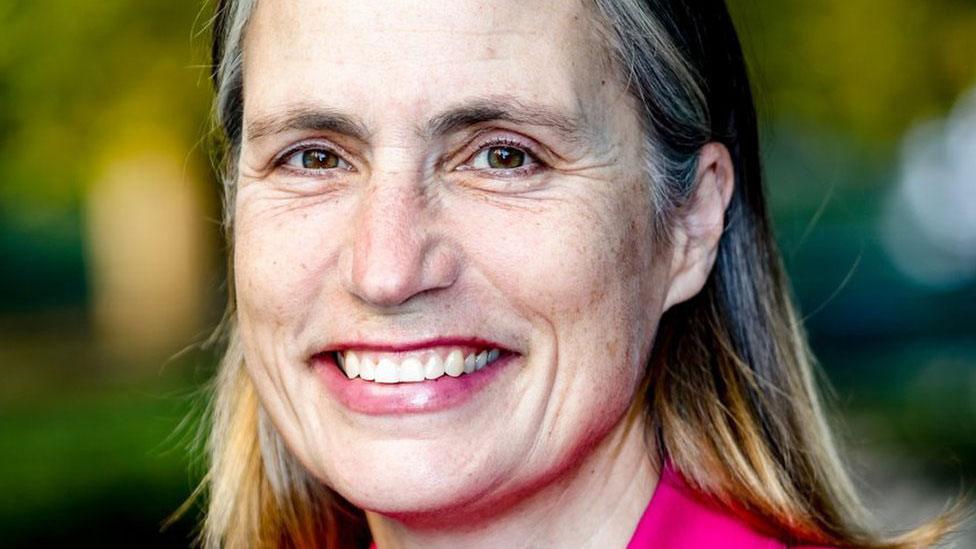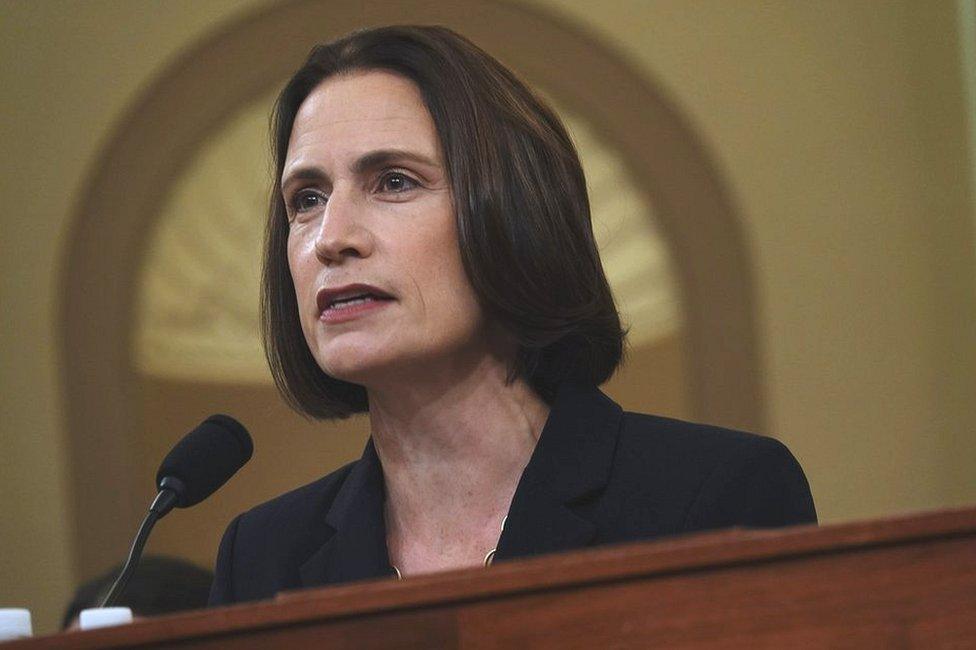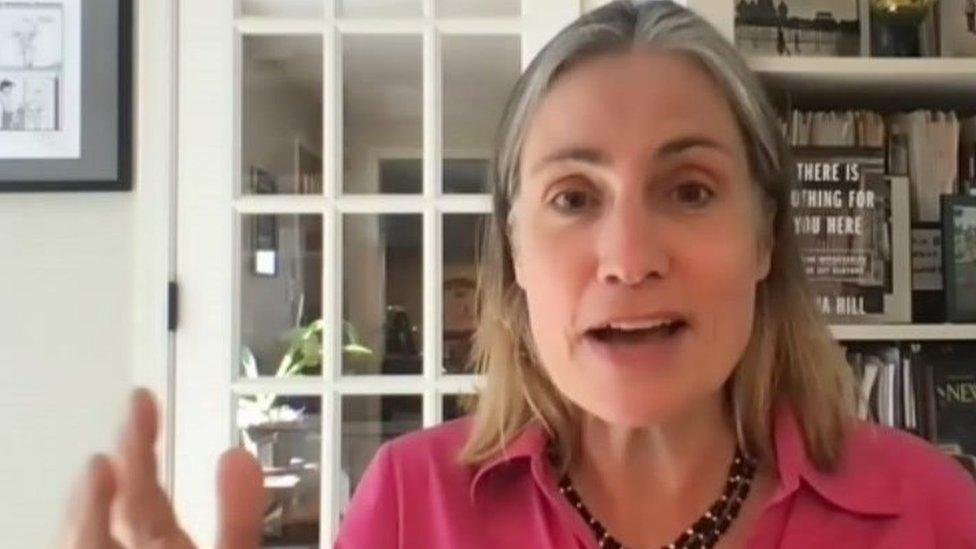New Durham University chancellor Fiona Hill questions education fees
- Published

Fiona Hill will start her tenure as Durham University's chancellor in 2023
A former White House adviser who will be Durham University's next chancellor has said current university fees could have put her off studying for a degree.
Fiona Hill said she would have "definitely rethought" higher education if she "had to take out massive loans".
The 57-year-old miner's daughter said the education system needed a "rethink" to be more accessible to more people.
The government said its policies had helped greater numbers of disadvantaged students go to university.
Dr Hill, who worked for George W Bush, Barack Obama and Donald Trump, will take up her university role next year.
Speaking to BBC Newscast, Dr Hill, a specialist in Russian and European geopolitics, said the cost of higher education had been a personal interest her "whole life".
"I wouldn't have had any of the opportunities I've had, including to study Russian, if it hadn't been for the accessibility of education," Dr Hill, from Bishop Auckland, said.
"I was completely paid for by County Durham - the local education authority covered all of my university education in the 1980s.
"I'm extraordinarily grateful for that."

Dr Hill provided testimony in the impeachment inquiry of President Donald Trump in November 2019
Dr Hill said education was not an "individual benefit" but of "massive societal benefit".
"We need to have investment in the education and training of the population," she added.
She said the UK system of paying back tuition fees was "slightly better" than that of the United States, but change was needed.
Dr Hill said the prohibitive current cost of higher education and the high demand for more people in professions such as nursing needed a "rethink about how we structure the fees and the loans and assisting people in how they get paid back".
She became a US citizen in 2002 and served on the US National Intelligence Council from 2006 to 2009, and was a member of the US National Security Council under President Trump.
In response to Dr Hill's interview, a Department for Education spokeswoman said there were "more 18-year-olds from disadvantaged backgrounds going to university than ever before" with the government having increased the maximum loans and grants available for students.
"Our investment in the future skills of this country includes not only the taxpayer-backed student finance system and freezing tuition fees, but also degree apprenticeships, which enable students to earn as they learn," she added.

Follow BBC North East & Cumbria on Twitter, external, Facebook, external and Instagram, external. Send your story ideas to northeastandcumbria@bbc.co.uk, external.
- Published29 November 2022

- Published20 October 2021
